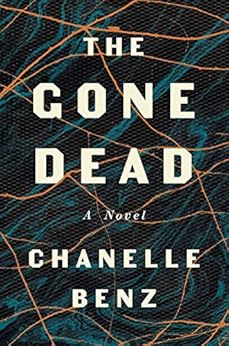This book was a
disappointment. I was expecting a
mystery with some focus on serious issues, but there is no real mystery, just
people not wanting to discuss the past and confront racial injustice.
After an absence of
three decades, Billie James returns to the Mississippi Delta. She has inherited the house where her father
Clifton, a well-known black poet, died in 1972, 30 years earlier. During her time in Glendale, she finds out
that some people suspect Clifton’s death may not have been the result of an
accidental fall as determined by the police.
She decides to stay and try to learn the truth, though there are people
who keep warning her not to ask too many questions. As she persists, she finds herself in
increasing danger.
The novel focuses on
Billie’s perspective, but the viewpoints of eight others are interspersed. The most interesting one is that of Avalon, “an
old juke joint” frequented by Clifton. After
describing all it has seen in its life, which has included “too much weeping
too damn much of the time,” it addresses Billie: “Listen, girl, everything you want to know is
near, telling itself over again, the song is on repeat.”
This statement really
indicates the theme of the novel: racism
still exists. People who know what
happened to Clifton do not want to address the issue of unjust treatment of
blacks in the past. Even her Uncle Dee
does not want her investigating his brother’s death. In the present, Billie becomes friends with a
white man but their relationship does not receive the community’s approval. Given the high incarceration rate for blacks,
Billie does not think she can trust the police.
The pace of the
narrative is slow so I found my interest waning. There is considerable extraneous information that
seems to serve little purpose. For
instance, Uncle Dee brings Billie to talk to one of Clifton’s former
girlfriends who says, “’Dee tells me you have been asking questions about your
daddy’s death.’” The following paragraph
follows that statement: “Her uncle is
still hovering. Her mother had a print of
the Röttgen Pietà, a fourteenth-century German
sculpture. In it, a mutilated Christ
lies emaciated in Mary’s lap, ribs showing, mouth fallen open, tiny compared to
the mass of his mother. But it is Mary’s
stony expression that is so disturbing:
the wooden, embittered agony. ‘She
got the police report,’ her uncle says.”
What does a German sculpture have to do with the discussion of the
police report of Clifton’s death? What’s
with the fixation with deodorant which is mentioned three times? Her uncle comes to take her to a bar and
Billie responds with “’What bar? I don’t
have deodorant on’”?? And how about this
disjointed conversation: “’My mother was
an academic. She specialized in
Christian medieval theology. So I know
me some King James.’ She inspects her raw elbow. ‘My cousin is in jail. I hate thinking of him in there. He was such a sweetheart’”??
The ending is
disappointing. There is no real closure
since many questions are left unanswered.
One character, Dr. Melvin Hurley, an academic writing Clifton’s
biography, is just dropped; he is present at the climax but then is never
mentioned again. The rushed climax and
abrupt ending – with no dramatic revelations – are not in keeping with the pace
of the rest of the novel.
The most positive
element of the novel is its rich sense of place. There is no doubt that the author is familiar
with the Mississippi Delta.
Unfortunately, I didn’t find much else to recommend the book. There is no real mystery because the manner
of Clifton’s death is totally predictable.
The theme is worth developing but its impact is lessened by an uneven,
disjointed narrative.

No comments:
Post a Comment